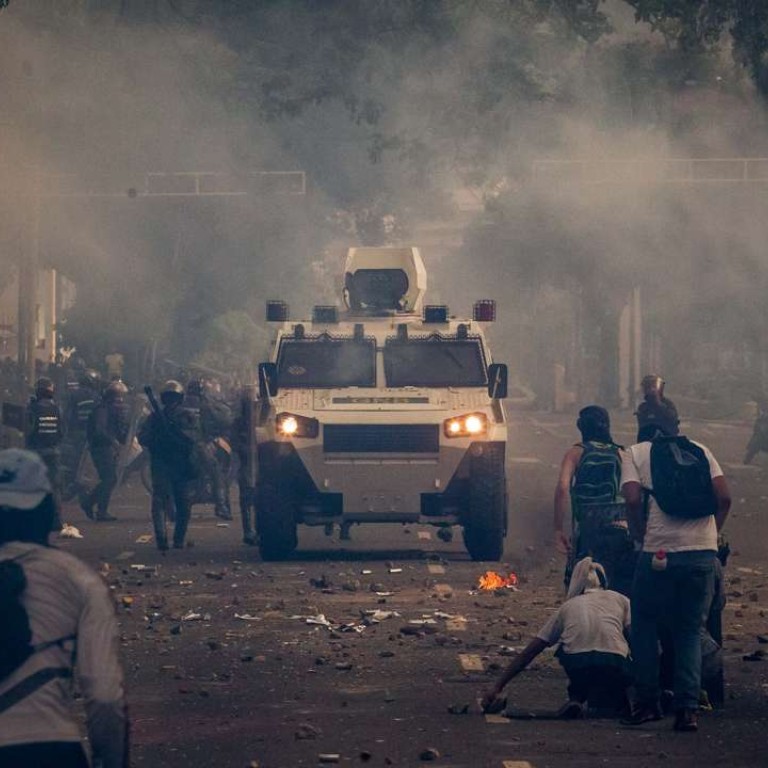
Three dead after ‘the mother of all marches’ against Venezuelan president Maduro
Two Venezuelan students and a National Guard sergeant died on Wednesday after being shot during protests against unpopular leftist President Nicolas Maduro, increasing turmoil in the volatile nation amid a devastating economic crisis.
Opposition supporters protested in Caracas and other cities in what they called “the mother of all marches,” denouncing Maduro for eroding democracy and plunging the oil-rich economy into chaos.
Crowds swelled to hundreds of thousands, including Maduro supporters who held a counter-demonstration in the capital at the urging of the president, and clashes were reported across the country during the most sustained protests since 2014.
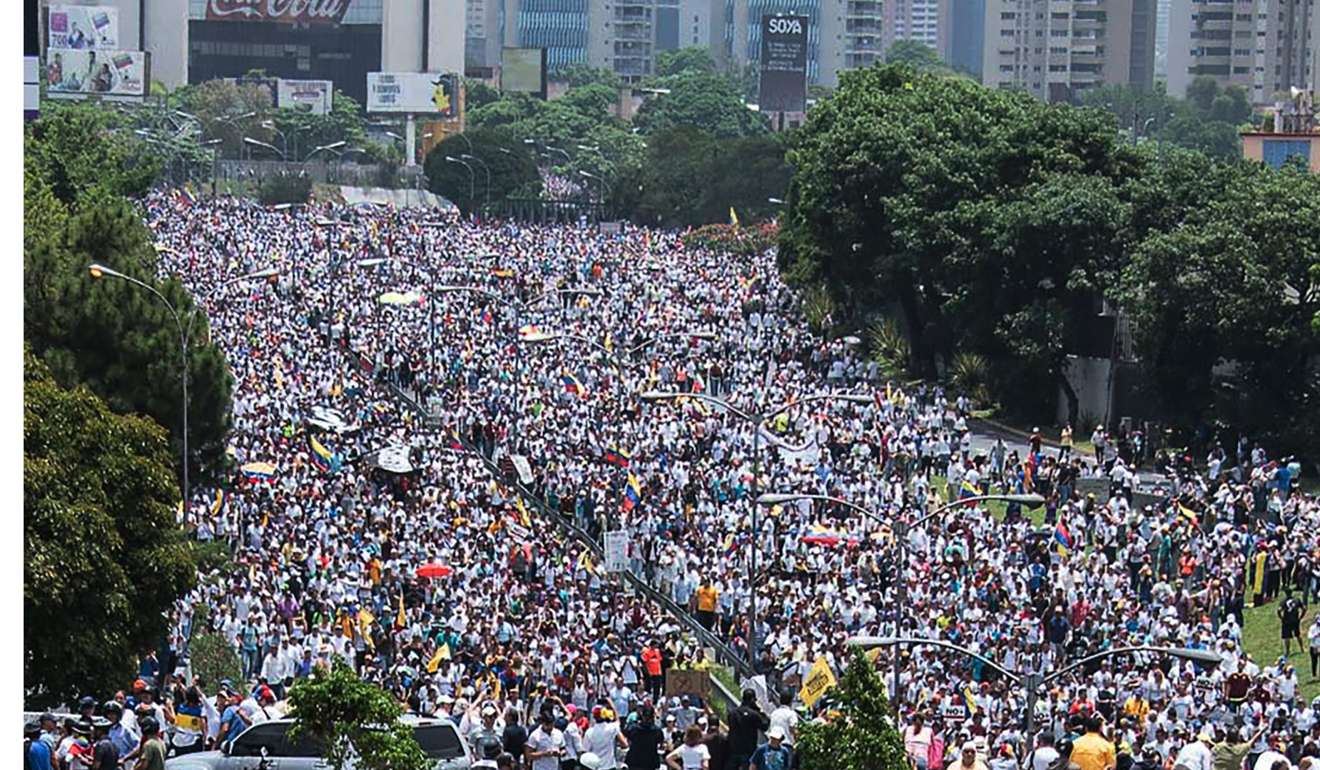
The deaths mean eight people have now been killed during protests in Venezuela this month. The opposition blames the deaths on security forces and alleged paramilitary groups. Over 400 people were arrested during protests on Wednesday, rights group Penal Forum said.
The opposition called for another protest on Thursday, raising the spectre of prolonged disruption in Venezuela.
“Same place, same time,” said opposition leader Henrique Capriles on Wednesday night. “If we were millions today, tomorrow we’ll be more.”
Wednesday’s duelling marches drew parallels to the clashes between pro and anti-government protesters in 2002 that triggered a brief coup against late President Hugo Chavez.
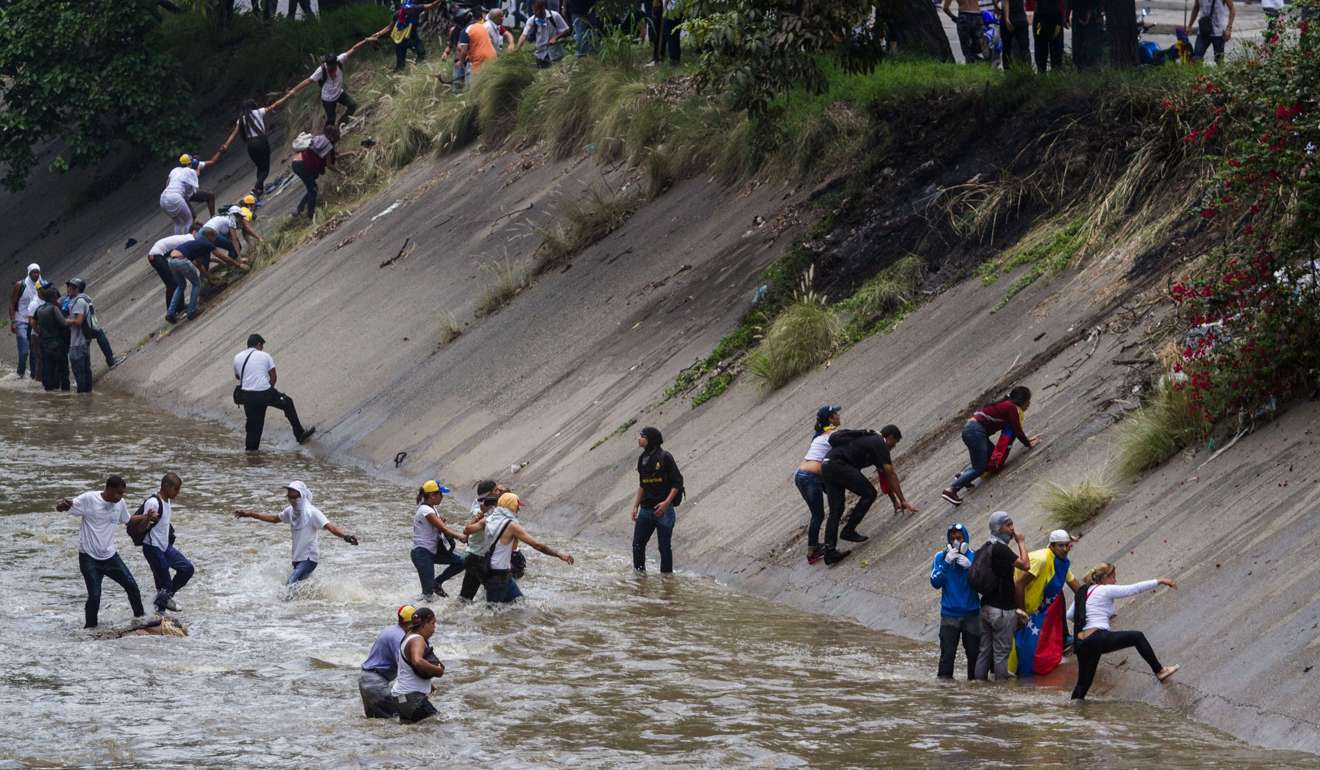
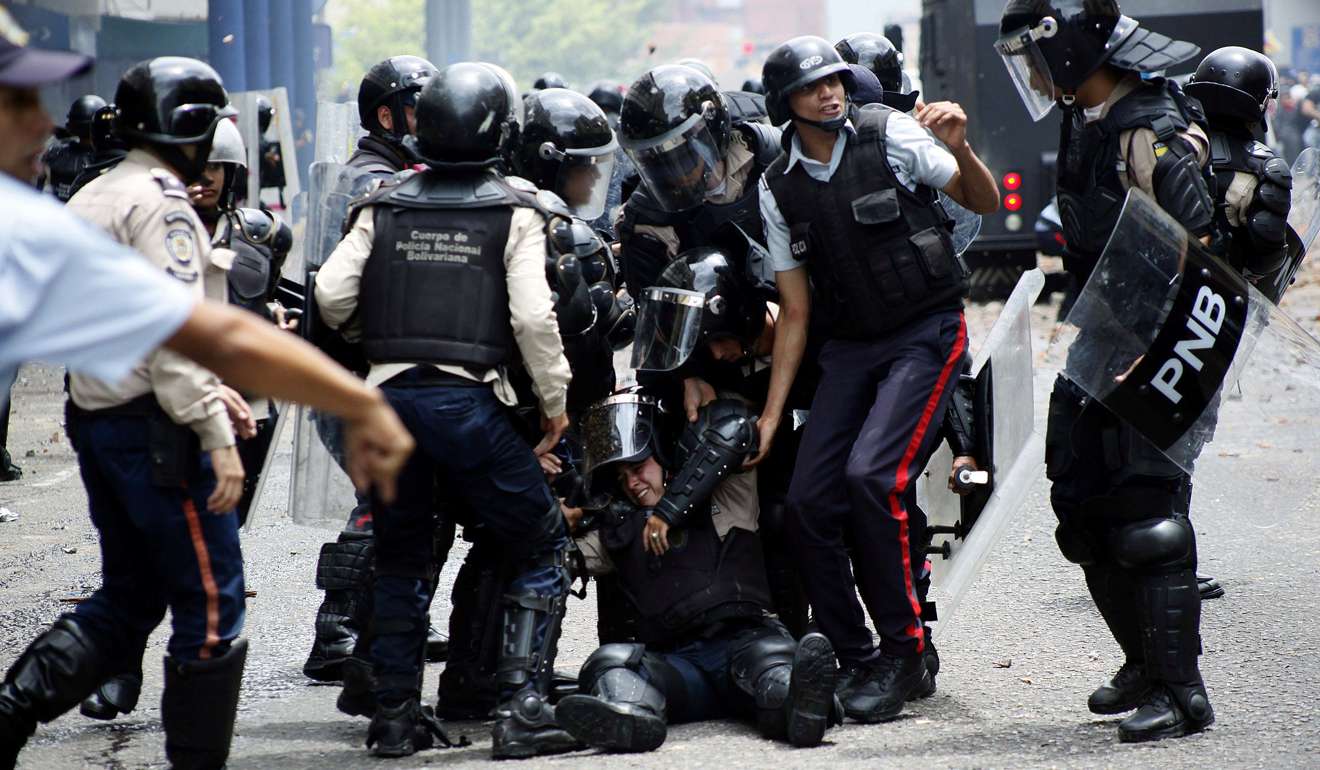
“We were on a motorbike and they were following us, shooting,” her boyfriend said. “I left her on a block where she was going to find her sister and I went to hide the bike. I heard shots and when I arrived she was on the ground. I tried to protect her as much as I could,” he added, sobbing in front of her body.
The public prosecutor’s office said it was investigating both cases.
The opposition attributed both deaths to groups known as “colectivos,” armed government supporters who are frequently accused of involvement in confrontations during protests.
There are few clear ways of identifying colectivos, who call themselves community groups but whom the opposition accuses of being violent paramilitary wings of the ruling Socialist Party.
A National Guard sergeant was killed by a sniper during “violent protests” in Miranda state and a colonel was injured, the human rights ombudsman Tarek Saab tweeted on Wednesday night.
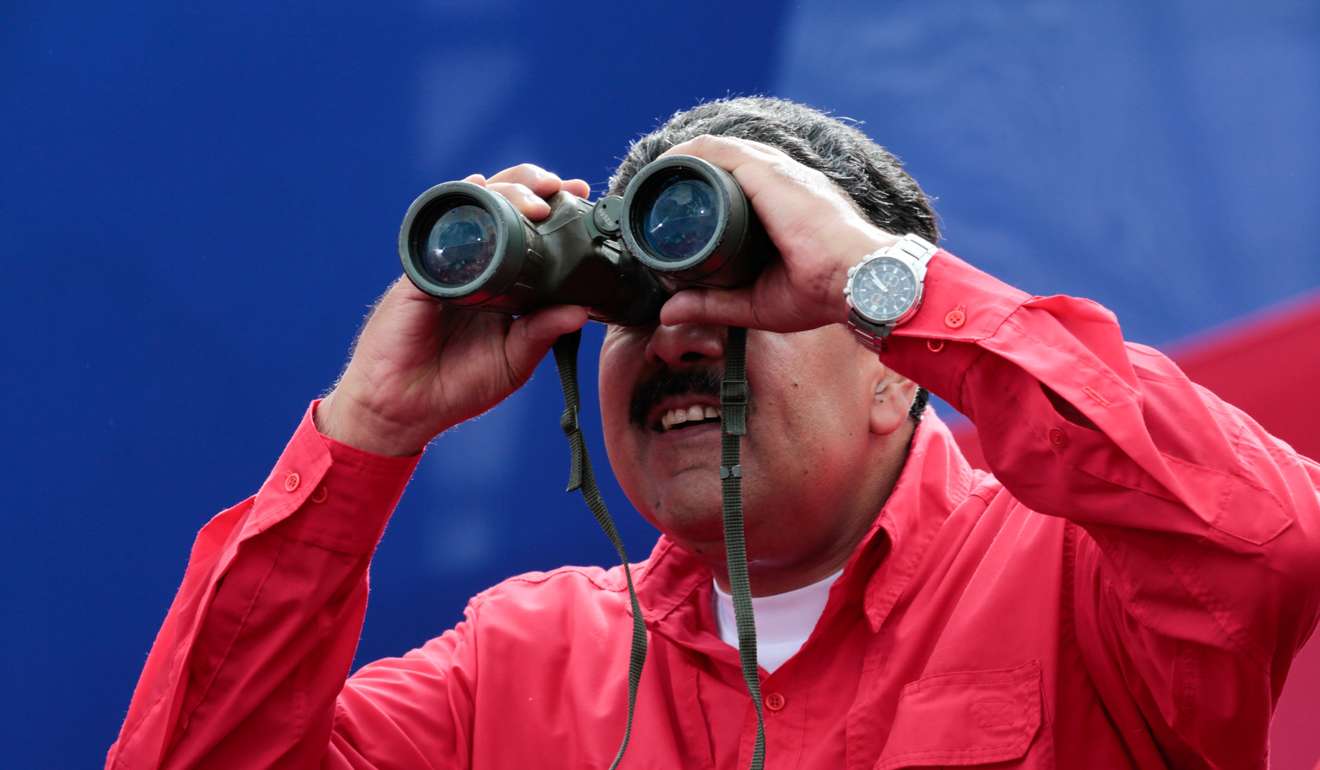
“We have to protest because this country is dying of hunger said Alexis Mendoza, a 53-year-old administrator marching in the Caracas neighborhood of El Paraiso. ”There are a lot of people in the opposition and they are full of courage.“
The march followed a fortnight of violent protests triggered by a Supreme Court decision in March to assume the powers of the opposition-led Congress - which it quickly reversed under international pressure.
The court’s move nonetheless fueled long-simmering anger over the ruling Socialist Party’s handling of the economy. The OPEC country suffers from Soviet-style shortages of food and medicines and triple-digit inflation.
The opposition is demanding early elections, the freeing of jailed politicians, humanitarian aid, and respect for the autonomy of the opposition-led legislature.
Maduro has charged that the opposition is trying to relive the 2002 coup against Chavez, his predecessor and mentor, by blocking roads and vandalizing public property.
On Wednesday afternoon he addressed a cheering red-shirted crowd in Caracas to declare that a “corrupt and interventionist right-wing” had been defeated.
“Today the people stood by Maduro!” the president said, blasting his rivals as “anti-Christs.” “We’ve triumphed again! Here we are, governing, governing, governing with the people!” he added, before breaking into song and dance.

